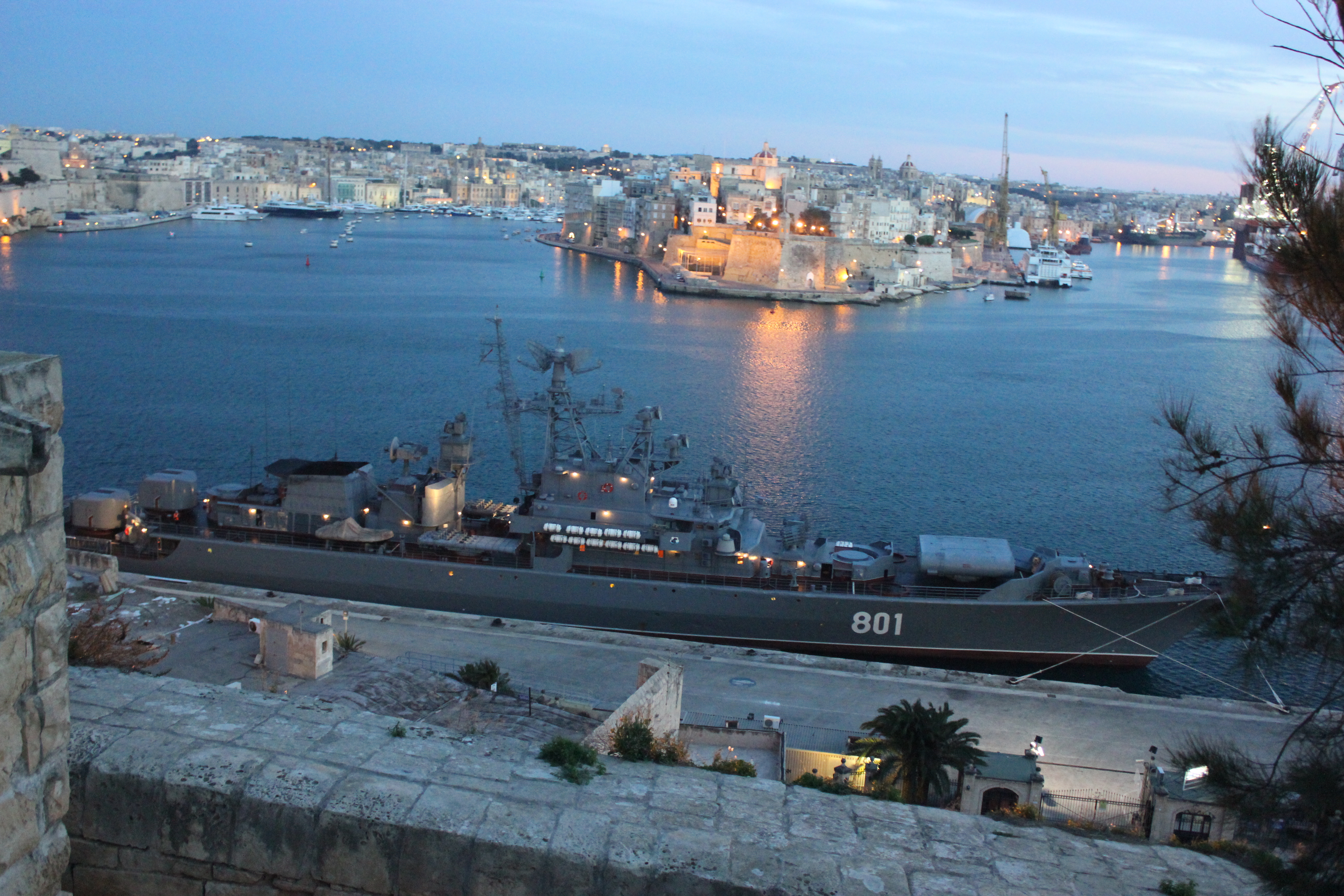
Russia’s Quest for Balkan Influence and Bases
Publication: Eurasia Daily Monitor Volume: 12 Issue: 35
By:

Russia has long harbored an expansionist drive to the Balkans and the Eastern Mediterranean. And the prelude or precondition for Moscow to be able to make real progress toward securing its influence in these areas has been its domination of Ukraine and the Black Sea (see EDM, September 22, 2014; October 16, 2014). Furthermore, it is quite apparent that Moscow believes its main geopolitical threat is European integration (see EDM, May 29, 2014). Therefore, it is no surprise that Russian foreign policy has invested heavily in raising its influence throughout this entire geographic expanse in order to break up the Euro-Atlantic community.
No sooner had the new Greek government been elected, Russia made clear its interest and readiness to support Greece in its economic crisis and to expand military-technical collaboration with the country, should Athens request it (Mid.ru, February 11). This led to a great deal of, as yet, unconfirmed speculation that Russia is asking Greece for a naval or other base there. What these reports have apparently done is conflated the more authoritative accounts, based on statements by Cypriot Prime Minister Nicos Anastasiades, which were originally presented in Greek and Cypriot sources (Cyprus-mail.com, February 10). These reports then led RIA Novosti to claim that an agreement would soon be signed from Paphos Air Force Base (RIA Novosti, February 9). Russian interest in Paphos and acquiring Cypriot and Balkan military bases is longstanding. Moscow has sought Paphos as a base since at least 2012–2013, as well as a naval base on the Adriatic at Bar in Montenegro. And it has previously acquired a land base at Nis in Serbia, ostensibly for humanitarian operations (see Jamestownfoundation.blogspot.com, November 30, 2011).
So far, Moscow has apparently not reached host-country agreements for any of these Mediterranean-region bases—with the exception of Nis—and the recent reports about Russo-Greek talks on the subject raised a media firestorm. Numerous Western and Russian sources have commented on the new extreme-left-and-right Greek government’s links to figures like Russian neo-imperialist and Eurasianist ideologue Aleksandr Dugin as well as other members of Russia’s elite establishment. Consequently, Russian interests in splitting Greece from its allies in the North Atlantic Treaty Organization (NATO) and the European Union make perfect sense for Vladimir Putin, especially as he has been trying to accomplish this goal for a decade now, if not longer (Moscow Times, February 4). But while these incidents have received the most Western media coverage in the past few weeks, they are not isolated developments.
The Russian press has lately been particularly exercised over events in the NATO-aspirant Balkan country of Macedonia, whose ongoing discord with North Atlantic Alliance–member Greece over Macedonia’s constitutional name could open it to Russian influence. In particular, reports of an attempted coup in Macedonia in late January–early February by the leader of the Social Democratic Party, Zoran Zaev, have led Moscow to attempt to intervene politically there. Macedonian intelligence declared, on January 31, that it had foiled this coup, which involved the Social Democrats and foreign intelligence services that were not identified. And on February 2, Moscow called for a thorough investigation into this thwarted coup plot (Skopje, MAKFAX, February 2). Russia accepted the Macedonian government’s allegations that a coup had, indeed, been attempted. And through its direct involvement, Moscow demonstrated its obsession with what it believes to be continuous Western activities aiming at sparking coups across the Eurasian space (such as the “coup” the Kremlin believes the United States and the West initiated in Ukraine one year ago). Accordingly, Russia intervened in this case to show its support for the Macedonian regime, while simultaneously attacking the US and its allies for purportedly interfering in Macedonia’s internal affairs (Skopje, Lajm, February 3). Ironically, Moscow adopted this position just three months after protesting Macedonia’s efforts to join NATO and the EU, claiming they would be regarded as a mistake and a provocation (Skopje, Utrinski Vestnik, February 3).
In other words, for all the obsession about Western-sponsored coups, Russian policy is supremely opportunistic and anti-Western and is willing to exploit any opening to enhance its status and influence throughout the Balkans and the adjoining seas: Adriatic, Aegean and Mediterranean. This relates, as well, to Russia’s contemporary efforts to increase its leverage in the Levant and Middle East (see EDM, August 16, 2012). Meanwhile, Russian militarization of the Black Sea continues unabated, and the second Minsk ceasefire agreement covering the war in eastern Ukraine, which Russia will almost certainly not abide by in the coming weeks, looks particularly fragile. Taken together, these intersecting regional trends have only intensified existing Western and, especially, Balkan concerns that Moscow is seeking to destabilize the Balkans to prevent these states’ integration with the wider Euro-Atlantic community.
Increasingly, the Kremlin’s grand designs in the Balkans—embracing energy deals, subversion, military bases, arms sales, organized crime and intelligence penetration—are becoming ever clearer. President Putin and his subordinates have been active throughout Southeastern Europe, deploying all these instruments of Russian power for over a decade. The invasion of Ukraine makes all these activities even more topical and dangerous. Consequently, Western inability to devise a coherent response to Russia simply exacerbates the threat to the Balkans as a whole and to individual states within it.




